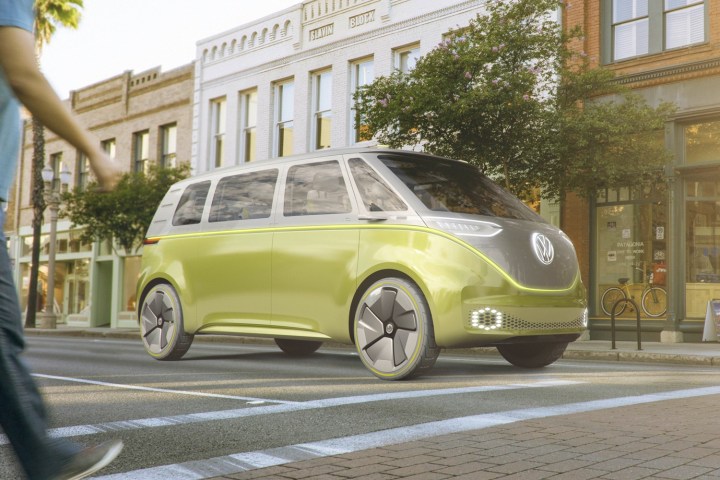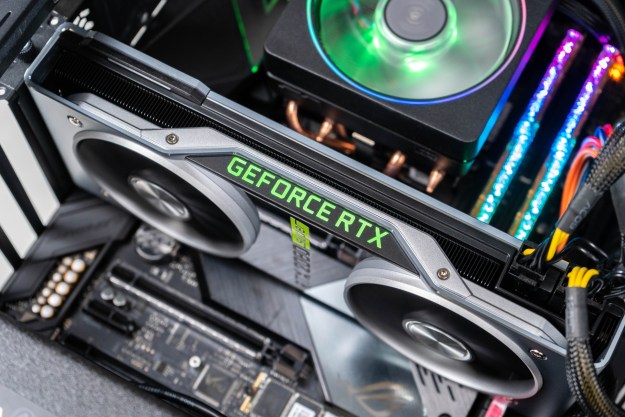
“Artificial intelligence is revolutionizing the car,” Volkswagen CEO Herbert Diess said in a press release issued by the two companies. Nvidia CEO Jensen Huang was equally optimistic, saying that “in just a few years” every new vehicle will have features likes “AI assistants for voice, gesture, and facial recognition, as well as augmented reality.”
VW will use Nvidia’s Drive IX Intelligent Experience computing platform to enable what the automaker claims will be a wide array of features. What VW calls “intelligent co-pilot capabilities” will take the form of both “convenience and driver assistance systems” that use data from a vehicle’s onboard sensors. The use of facial recognition to unlock a car, gesture control, natural-language voice control, safety warnings, and eye tracking to measure driver attentiveness are all possible, according to Volkswagen.
That sounds an awful lot like KITT, but instead of a Pontiac Trans Am, the first car to get these capabilities will likely be the I.D. Buzz, one of VW’s upcoming electric cars. Based on a 2017 concept car, the I.D. Buzz is an homage to the classic Volkswagen Microbus. It’s set to go into production in 2022 as one of a number of new VW electric cars. The automaker plans to launch no less than 20 all-electric cars by 2025 as it works to clean up its act after the “Dieselgate” emissions scandal.
Volkswagen said it also plans to “gradually” introduce autonomous-driving capabilities into its vehicle lineup beginning in 2020, and expects the Nvidia AI partnership to help with that. While two major companies like VW and Nvidia teaming up on in-car AI is significant, there are still many unanswered questions about how the partnership will work, and exactly what features the companies will commit to putting in production cars. As with all emerging technologies, in-car AI sounds good on paper, but that doesn’t mean adapting it to the real world will be easy.
This partnership is one of many Nvidia announced at CES 2018. The company is also working with autonomous-driving startup Aurora Innovation on self-driving car tech. Aurora, in turn, is partnering with Volkswagen. Uber will also continue using Nvidia computing hardware in its fleet of self-driving cars, and Nvidia will partner with ZF and Baidu to develop a self-driving car computing platform specifically for China.
Editors' Recommendations
- Are we about to see ‘the iPhone of artificial intelligence’?
- Nvidia’s supercomputer may bring on a new era of ChatGPT
- Nvidia’s latest A.I. results prove that ARM is ready for the data center
- Nvidia is renting out its AI Superpod platform for $90K a month
- How the USPS uses Nvidia GPUs and A.I. to track missing mail



